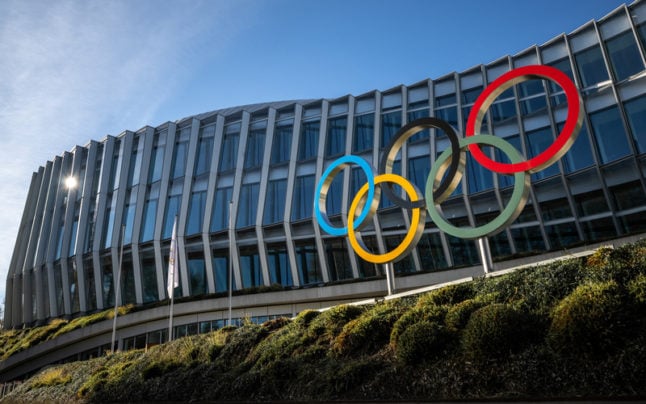The cultural differences between the diverse regions of Switzerland are a frequent topic here on The Local – and nowhere is it more unique and diverse than the Italian-speaking south of the country.
Expectedly, things take on a more Italian flavour – however the region’s location and history have given these Italian traditions a uniquely Swiss feel.
READ ALSO: How to celebrate Christmas like the Swiss
Nowhere is this more apparent than at Christmas time, where the festivities take place on a different day (December 25th), a different time (a lunch rather than dinner), where fish is served – and where dessert or il dolce takes centre stage.
The panettone is so much a part of Swiss culture that the cake itself keeps guests in check on the 25th, while another famous local dessert is the spampezie – a square pastry filled with grappa.
How sweet it is
Although arguments about whether to serve fish or meat are set to punctuate the lead up to Christmas (the usual result is that both will be served), the true star of the show on Christmas Day is the dessert.
Although geographically small, the Italian-speaking region of Switzerland has a remarkably diverse range of Christmas desserts and cakes – but the absolute favourite is undoubtedly panettone.
The panettone is such an important part of Ticinese and northern Italian culture that in November 2019 the region held the first Panettone World Cup.

A typical panettone. Image: Depositphotos
The gold medal went to a bakery in Genoa (Italy), however Ticinese bakers picked up the silver and bronze medals.
The panettone is a sweet bread loaf which is similar to the German stollen, but sits high in an octagon shape and contains raisins, lemon zest and candied oranges.
While sampling or even touching is forbidden, the panettone will sit in the middle of the table throughout Christmas lunch as a reminder of who is boss.
Please don’t make the cake vomit!
In Ticino there’s also a saying at Christmas time – quéll lí al fa vigní sü ul panetún da Natál – which loosely translates to “that [thing you did/said] makes the panettone vomit”.
The phrase is used when someone is being too annoying, boring or inappropriate – and is meant to ensure good and engaging behaviour around the table at Christmas time.
As reported in the Ticino Courier, “we must hope that this does not happen, especially at this time of celebration”.
Truer words have ne’er been spoken.
Spampezie
If panettone isn’t your bag – or if you’d prefer to outsource the task of ruining dinner to yourself – there’s of course the spampezie.
Unlike what the name might suggest – and fortunately for vegetarians and people with tastebuds – the dessert does not contain spam. Instead, spampezie is a gingerbread-like pastry filled with grappa.

A spampezie. Image courtesy Ticino.ch
We’ve not got official statistics on how many spampezie you’d need to eat to put yourself over the limit, but considering the amount of wine and booze consumed at this time of year, there’s the very real chance a spampezie or two might put you over the edge.



 Please whitelist us to continue reading.
Please whitelist us to continue reading.
Member comments